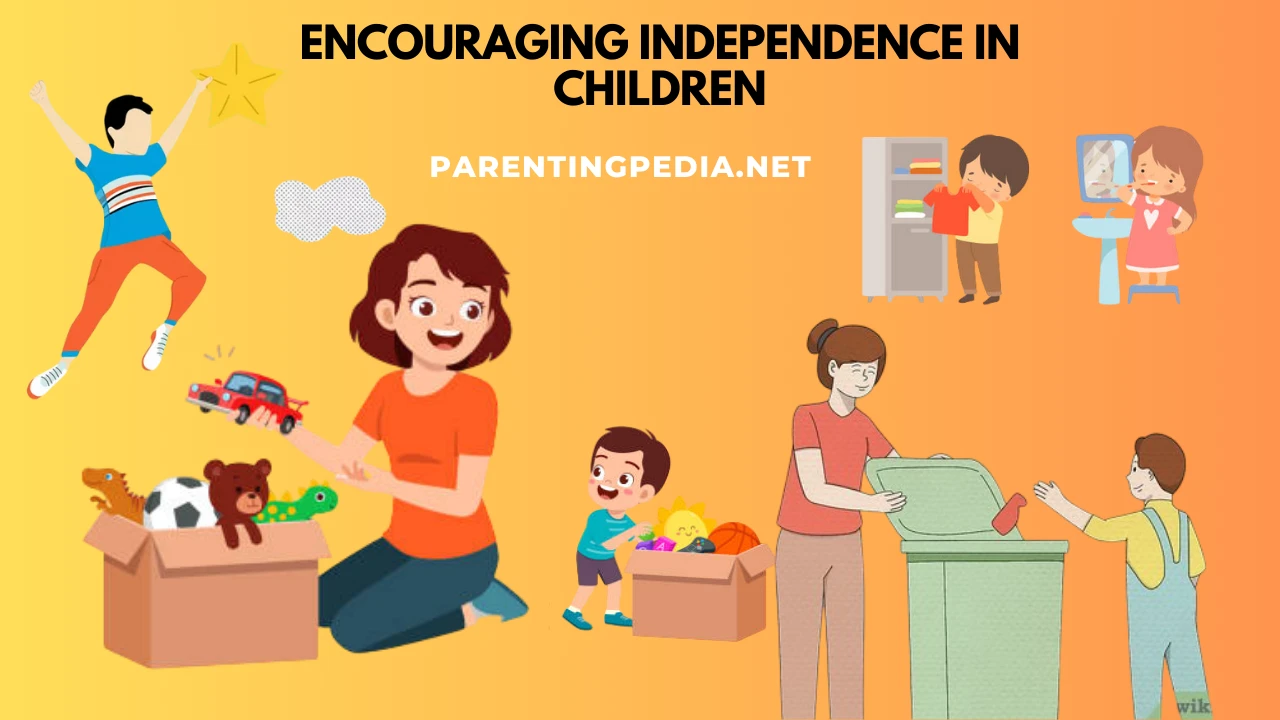Every parent wants their child to grow up confident, capable and ready to face the world. One of the most important ways to help children become strong and self-reliant is by encouraging independence. Independence allows children to make choices, learn from mistakes, and feel a sense of control over their own lives. It helps them develop problem-solving skills, responsibility and self-confidence. In this article, we will explore why independence is important for children, how parents can support it at different ages and simple tips to encourage it in daily life.
Why Is Independence Important?
Independence in children is more than just doing things on their own. It is about developing the confidence to try, the courage to fail and the motivation to keep going. Here are some key reasons why it is important:
1. Builds Self-Confidence
When children complete tasks on their own, they feel proud. Each small success builds their belief in their abilities.
2. Teaches Responsibility
Taking care of their belongings, doing homework or helping around the house helps children learn that they have a role to play in their environment.
3. Strengthens Decision-Making Skills
When kids make choices, even small ones like what to wear or what snack to eat, they start learning how to think for themselves.
4. Encourages Problem-Solving
When children try things on their own, they may face obstacles. Working through these challenges helps them become better problem-solvers.
5. Prepares for Adulthood
Independence in childhood lays the foundation for becoming a responsible and capable adult who can manage life’s ups and downs.

How Independence Develops Over Time
Independence grows slowly over time. Children need chances to learn and practice, and they need patient guidance from adults. Here is a general idea of what independence might look like at different ages:
Toddlers (1–3 years)
Toddlers can learn independence by:
- Wanting to try things themselves
- Can help with small tasks like putting toys away
- Begin choosing clothes or snacks
- Learn to say no and express preferences
Preschoolers (3–5 years)
Preschoolers can learn independence by:
- They can dress themselves with some help
- Start learning to follow simple routines
- Can help set the table or clean up
- Begin making small decisions
School-age Children (6–12 years)
- Can complete homework and chores with reminders
- Learn to manage time with support
- Make more complex decisions about friends and hobbies
- Develop interests and opinions
Teens (13+ years)
Teens can develop independence by:
- They should be given more freedom with limits
- Can manage responsibilities like studying, budgeting, and helping at home
- Teens need support as they make bigger life choices
Tips To Encourage Independence
Every child is different and the pace of independence in children will vary. Here are some gentle, practical ways parents can encourage independence in children of all ages:
1. Offer Choices
Giving children choices allows them to feel in control. For young kids, this could be choosing between two outfits or snacks. Older kids can decide how to schedule their homework or which activities they want to join.
2. Let Them Try Even If They Fail
It is tempting to step in and help but allowing children to struggle a little teaches resilience. Whether it is tying shoes or solving a math problem, let them try first.
3. Assign Age-Appropriate Responsibilities
Chores like feeding pets, making the bed or packing school bags teach responsibility. Start with simple tasks for children and build up over time.
4. Praise Effort, Not Just Success
Instead of saying “You are so smart” to child, say “You worked hard on that.” This builds a growth mindset and encourages kids to keep trying even when things are hard.
5. Create Routines
Routines help children know what to expect and take charge of parts of their day. A bedtime routine, morning checklist, or homework schedule builds structure and independence.
6. Be Patient
Learning independence takes time and can be messy. Expect mistakes and use them as teaching moments rather than reasons to take over.
7. Encourage Problem-Solving
When your child faces a challenge, don’t solve it right away. Ask questions like, “What do you think you could do?” or “How would you like to handle this?” to encourage problem solving and independence in children.
8. Respect Their Choices
As kids get older, they will have their own opinions and preferences. Respecting their choices even if they are different from yours builds trust and self-confidence in children.
Challenges In Encouraging Independence
While promoting independence is important, it can be challenging for parents. Here are some common struggles and how to handle them:
1. Fear Of Mistakes Or Failure
Parents often worry that if their child makes a mistake, it will hurt them. But mistakes are a part of learning. Support them through the process and teach them to try again.
2. Overprotectiveness
It is natural to want to protect your child. But doing everything for them may limit their growth. Instead, slowly let go and allow them to take safe risks.
Also Read: Teaching Children How To Handle Failure
3. Resistance From The Child
Some children may resist doing things on their own. Encourage them gently, show them how to do it and praise their effort. With time, they will gain confidence.
4. Lack Of Time Or Patience
Life can be busy and doing things for kids is often faster. But letting them do it builds important skills. Try to slow down when you can and enjoy the learning process together.
The Parent’s Role: Support, Don’t Control
Encouraging independence does not mean leaving children on their own. It means being a guide to children offering support when needed but stepping back enough to let them grow. Here is how you can support their growth:
- Be available when they need help, but encourage them to try first.
- Model independence to children by managing your own responsibilities calmly.
- Celebrate progress with children, no matter how small.
- Stay involved, especially as kids grow older. Independence does not mean disconnection from children activities rather than support to them.

Conclusion
Encouraging independence in children is one of the best gifts you can give them. It helps them become strong, responsible and confident individuals. While it may be challenging at times, your support, patience, and trust will help your child learn to believe in themselves.
By offering choices, encouraging effort and allowing room for mistakes, you give your child the tools they need to thrive, not just today but throughout life. Independence does not grow overnight, but with love and support, your child will become capable of facing the world on their own, one small step at a time.
FAQ
How do you promote independence in children?
To promote independence in children, give them age-appropriate responsibilities, encourage decision-making and allow them to solve problems on their own. Offer choices, praise their efforts, and support them through mistakes. Creating a safe, supportive environment helps build their confidence and teaches them to trust their abilities.
Why is child independence important?
Child independence is important because it builds confidence, responsibility and problem-solving skills. Independent children learn to make decisions, handle challenges and develop a strong sense of self. It prepares them for adulthood by encouraging resilience and self-motivation. Supporting independence helps children feel capable and empowered, leading to healthier emotional and social development as they grow.
Remember, the greatest reward of parenting lies in watching
your children soar with love and confidence.
Till then keep smiling and be happy
Complete Offers and Earn Reward – Claim Now

